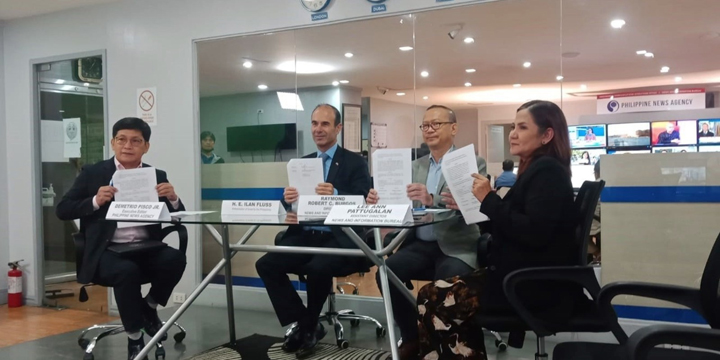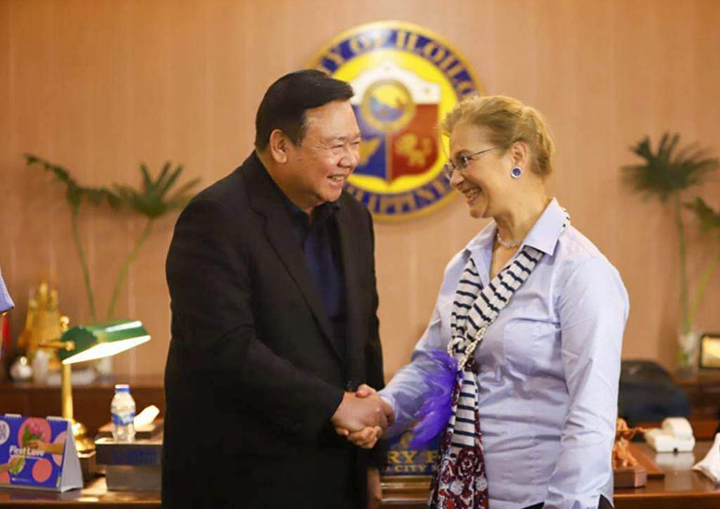EMBASSIES of the Netherlands and Germany recently backed the country’s established rights on sexual orientation, gender identity, expression and sex characteristics (SOGIESC).
“…The [Kingdom of the] Netherlands stand in solidarity with you to promote equal rights, fight stigma and discrimination, as well as increase the visibility of educating lesbian, gay, bisexual, transgender/transexual, [queer and many other] persons,” remarked Ambassador Marielle Geraedts during the launch of the “Philippine Financial and Interindustry Pride (PFIP) Playbook:” a compendium of LGBTQ+ inclusive policies, programs and practices for local organizations.

Geraedts thanked legislators—mainly Senator Ana Theresia “Risa” Hontiveros—for championing the SOGIE Bill despite opposition from conservative elements, and also credited LGBTQ+ advocates who lobbied their respective local governments to pass their own antigender discrimination laws.
The envoy mentioned Quezon City, led by Mayor Ma. Josefina “Joy” Belmonte, as a local government champion of gender equality by educating the public on the stories and rights of the LGBTQ+ community.
“We are seeing the fruits of your labor, [as we are making more] gender champions around the world,” the Dutch diplomat disclosed.
More ‘push’
AMBASSADOR Anke Reiffenstuel of the Federal Republic of Germany said the Philippines has to exert more efforts in pushing for gender equality and inclusivity.
“As we launch the PIFP Playbook, we still have a long way to go. According to the World Economic Forum Index on gender equality, the Philippines dropped from 17th to 19th,” Reiffenstuel remarked.
Although Executive Order 100, or the “Institutionalizing the Diversity and Inclusion Program, Creating an Interagency Committee on Diversity and Inclusion, and for Other Purposes” was passed during the Duterte administration, the German envoy pointed out that LGBTQ+ members and minorities experience violations of their rights which discourages their full participation in the labor market and denial of access to basic public health services, plus they are exposed to hate-related and heinous crimes.
“The Philippines does not have a comprehensive antigender discrimination law that protects the LGBTQ+,” she said.
Although there are still challenges in pushing for pro-LGBTQ+ initiatives, Reiffenstuel said the introduction of the PFIP Playbook is encouraging and inspiring because of the commitment as well as consistent and long-time dedication of principal stakeholders and the lawmakers: “What I have seen today is exciting. Fighting, working and advocating for gender equality is not an ‘either-or.’ It is not a top-down approach, but [one from] all directions where everybody is involved.”
“More…businesses are realizing that [diversity, equity and inclusion] are not only buzzwords; these ideas carry hope and progress for many in the LGBTQIA+ community who are deserving of recognition and respect as they live and work according to their true selves and identities,” Geraedts added.
‘Big win’
FOR her part, Hontiveros acknowledged the significance of the PFIP Playbook in the country’s continued fight for a national antidiscrimination law that protects persons of diverse SOGIESC.
“At the heart of the bill, there are only basic rights. Through the PFIP Playbook, educating organizations, institutions and communities we are part of has never been easier,” the solon said. “Bigger battles are won through the victories of many smaller [groups]. No win is ever too small, and a win like today’s playbook is bigger than many.”
The PFIP Playbook is a critical resource for business managers and industry leaders keen on building safe and welcoming, diverse and inclusive, as well as ethical and sustainable bodies. Based on the experiences and expertise of leading private groups in the Philippines today—all recognized employers of choice—the playbook defines possibilities within the current socio-legal landscape, and directs stakeholders toward greater LGBTQ+ inclusion in work places and beyond.
Supported by extensive research by the University of the Philippines’ Center for Women’s and Gender Studies, the playbook also chronicles PFIP’s successes in its first decade. It features case studies illustrating the diversity, equity and inclusion journeys of PFIP member-companies: from early pains, to landmark wins.

































